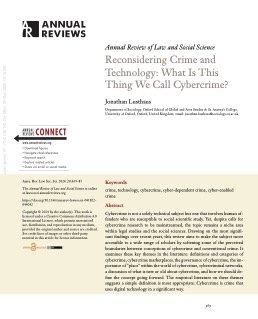By Ronald V. Clarke and Phyllis A. Schultze
This guide, one of the Problem-Solving Tools Series, summarizes knowledge about information gathering and analysis techniques that might assist police at any of the four main stages of a problem-oriented project: scanning, analysis, response, and assessment. This tool takes the mystery out of conducting research on problems by helping the user to define their problem, use technology to conduct Internet searches, get advice from experts, visit libraries, and evaluate their primary sources of information. The guide offers helpful hints to understanding and identifying responses to problems based on the research gathered.
Problem-oriented policing focuses, one-by-one, on specific problems of crime and disorder with the intention of identifying and altering the particular factors giving rise to each problem. The problems addressed in problem-oriented policing tend not to be confined to just a few police jurisdictions, but are more widely experienced. It is therefore likely that some other agency has tried to solve the kind of problem that you are dealing with now. Or perhaps some researcher has studied a similar problem and learned things that might be useful to your work. You could save yourself a lot of time and effort by finding out what they did and why. In particular, you can learn which responses seemed to be effective and which were not. So long as they made available a written report of their work, this guide will help you discover what they did. Having found out what others have done, you cannot simply copy what they did. You will have to adapt any successful responses they used to your own situation. This guide does not tell you how to analyze and understand your own problem.† It will only help you to profit from the work of those who have dealt with a similar problem. It is designed to take you as quickly as possible to the information you need and to help you evaluate and make the best use of this information. In doing this, it assumes: • You are familiar with problem-oriented policing. The guide assumes that a problem-solving model, such as SARA (Scanning, Analysis, Response, Assessment), is guiding your project. The guide will assist you at the Analysis and Response stages by pointing you to the possible cause of the problem you are tackling and to the ways you might respond. • You are willing to consider new responses to the problem. Rarely does police enforcement alone solve a persisting problem. To bring a lasting improvement, it is almost always necessary to modify the conditions giving rise to the problem, such as a lack of security or surveillance. Whatever measures you adopt must be carefully matched to the nature of your problem. Many of the measures are likely to be outside your experience and, indeed, that of most police officers. So, you need to learn about the ones that have been successfully used before in dealing with the kind of problem you face. While it is not usually recommended that a police agency blindly adopt another agency's responses to a problem, neither is it a good idea to be blind to what others have done. The key is to understand whether lessons learned elsewhere would apply under the conditions that exist for your problem. • You have limited time. The guide assumes that you have limited time to research best practice and that you want results quickly. You are not writing an academic paper where you might be faulted for missing a particular article or book. You are simply trying to find information that will help you with the practical task of dealing with your problem. For this reason, the guide does not provide a comprehensive description of all information sources, whether on the Internet † or in libraries. † Comprehensive descriptions are provided by Benamati et al. (1998) and Nelson (1997). Rather, it is intended to help you find two main categories of information relevant to your task: (1) articles by researchers who have studied the problem you are facing and, (2) reports of police projects dealing with the problem. The first category of information will help you understand the factors giving rise to your problem; the second will help you find effective responses. Later in the project, you might wish • You have Internet access. Nowadays, it is very difficult to research a problem without having access to the Internet. The guide assumes that you have this access and that you are familiar with searching for information on the Internet. (Indeed, you might have found this guide on the Internet.) The computer you use will need † a copy of Adobe Reader, which allows you to read and download articles in portable document format (.pdf) that you find at websites on the Internet. Unless your computer has a high speed connection, this process of visiting websites and reading and downloading material can be slow and frustrating. Most computers in libraries have high speed connections and you can usually pay to obtain print copies of the material you have downloaded
Problem-Oriented Guides for Police Problem-Solving Tools Series No. 2
Washington, DC: U.S. Department of Justice Office of Community Oriented Policing Services, 2005. 72p.




















